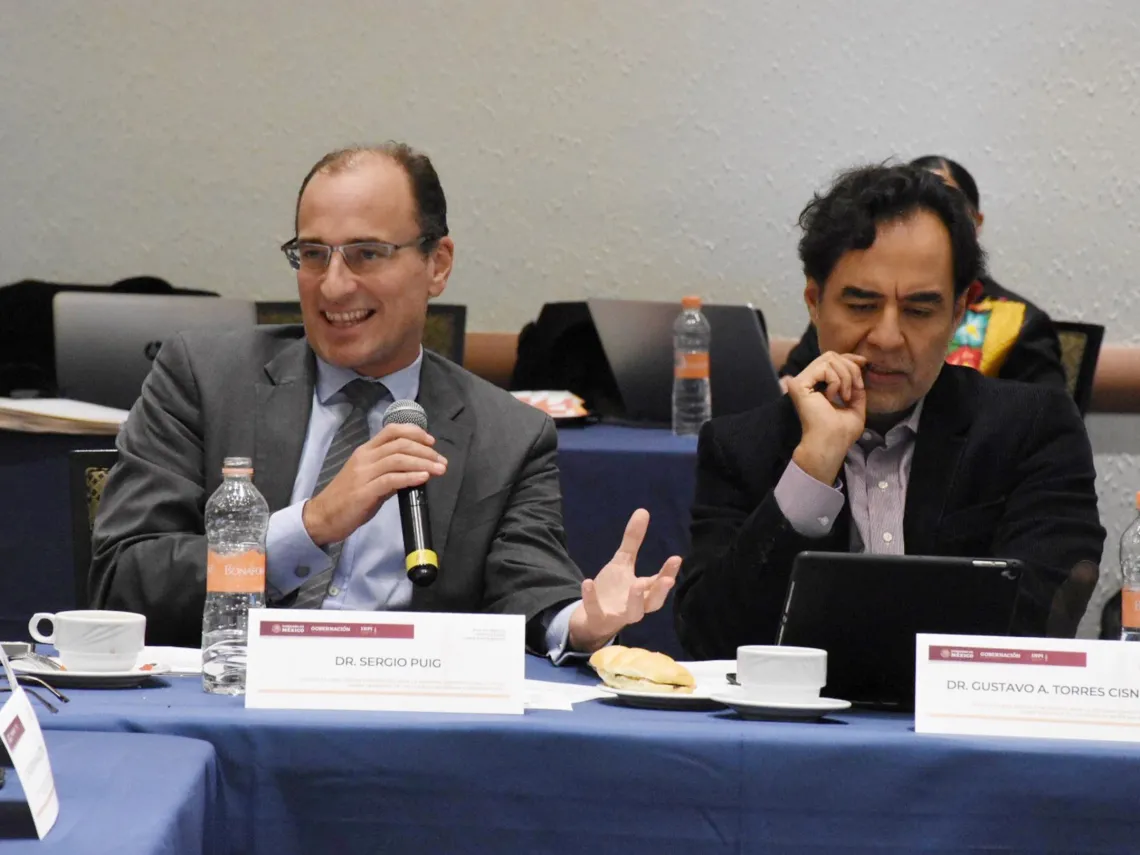University of Arizona Law Professor Sergio Puig is Shaping Human Rights Reform Around the World

As director of the International Trade and Business Law program at University of Arizona Law, Professor Sergio Puig’s teaching and scholarship focus on topics including Business and Human Rights. Beyond campus, his expertise on international law is being called on around the world.
Puig recently served on a committee to draft the Mexican Constitutional Reform on Indigenous Peoples Rights, which intends to expand protection for and empower indigenous peoples in Mexico. He was also part of the drafting team of The Hague Rules on Business and Human Rights Arbitration, a set of rules for resolving disputes where businesses are implicated in human rights abuses.
Puig says the role of the 25-person committee drafting the Mexican Constitutional Reform on Indigenous Peoples Rights was to oversee the technical aspects of the consultations with Mexican tribal members (including in Los Angeles, CA) and to then propose a draft for the reform based on the input received from the 69 Mexican and transnational indigenous groups.
"As a committee member, my main role involves ensuring that the reform is consistent and takes into account international law, including the economic rights of indigenous peoples,” says Puig.
He says the reform will not only help indigenous peoples, but he hopes it can contribute to the creation of a more equal society in his home country and a better culture of human rights compliance. “It is perhaps the most ambitious project to make equality a reality in Mexico by this administration” says Puig.
The reform will be presented by President Andrés Manuel López Obrador to the Congress in the coming months.
Puig was also tapped by the Center for International Legal Cooperation to be part of The Hague Rules on Business and Human Rights Arbitration’s Drafting Team, where members were selected to provide expertise from major regions in the world.
The Hague Rules provide a set of procedures for the arbitration of disputes related to the impact of business activities on human rights and are based on the Arbitration Rules of the United Nations Commission on International Trade Law, with important modifications to address issues likely to arise in this complex context.
The drafting team solicited views from more than 200 individuals from various stakeholder groups, including business, non-governmental organizations, governments, international organizations, human rights lawyers, judges, arbitrators, practicing attorneys, academics and others with expertise in human rights, arbitration, operation of supply chains and other topics relevant to the elaboration of the Hague Rules.
The feedback informed the Hague Rules, which took nearly two years to draft before being finalized and launched in December 2019 at the Peace Palace, the seat of the International Court of Justice.
Says Puig of his work “These reforms are shaping the way that we think about human rights and the mechanisms available to make violators accountable.”
